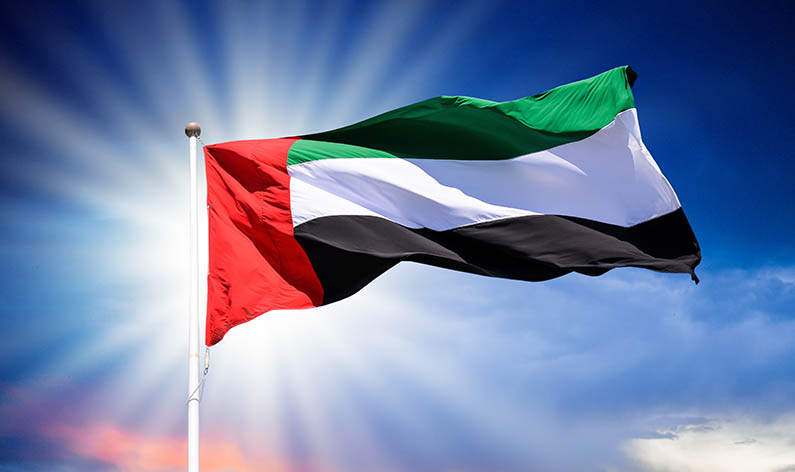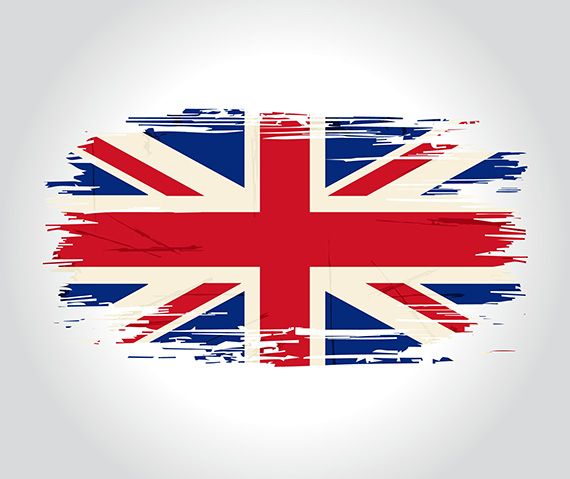More news
- Nigeria’s paint industry navigates regulatory changes and economic challenges amid p...
- Focus on the global coatings market: Global coatings market outlook
- View from the UK: Navigating chemical policy and sustainability
- Architectural coatings in Nepal and Bhutan
- Focus on adhesives: Unveiling unbreakable bonds – Testing redefines physical strengt...

Ahead of this year’s Middle East Coatings Show in Dubai, Heba Hashem reports for PPCJ on how demand for eco-friendly paint is rising in the UAE paint and coatings market, amidst commercial construction upswings
The United Arab Emirates’ (UAE) spending push on mega construction projects is generating strong demand for paints and coatings in this key Gulf region economy.
This includes developments such as ‘Dubai South’, which will house the world’s largest airport, Al Maktoum International Airport. Also, the Etihad Rail railway network, which has been completed within the UAE and is ultimately designed to connect all six Gulf Cooperation Council (GCC) states – the UAE, Oman, Qatar, Bahrain, Kuwait and Saudi Arabia. This, plus ongoing major residential projects, like the revival of stalled schemes such as Palm Jebel Ali, a man-made island planned to encompass 35,000 homes and more than 80 hotels and resorts, also promises many new construction contracts, which will in turn, create opportunities for the paint and coatings industry.
According to UAE-based construction intelligence provider BNC Network, the country’s construction market has nearly 16,600 live projects worth an estimated US$2.15trn.
During the first nine months of 2023, contract agreements concluded in UAE grew 53.2% in value, reaching about US$51.66bn, compared to US$33.72bn in the same period in 2022, the state-owned Aletihad News Centre has reported, citing data from BNC Network. The value of oil and gas sector contracts alone increased by 344% in this period to reach US$8.31bn.
“Increased construction activities across the UAE and neighbouring countries are fuelling demand for high-quality paints and coatings,” Sharad Malhotra, President for automotive refinishes and wood coatings at Nippon Paint India, told PPCJ.
“The construction boom is driving demand for specialised coatings tailored to specific applications: fire-retardant paints for safety, weatherproof coatings for exterior surfaces, and durable solutions for infrastructure projects,” he said.
Nippon Paint Middle East currently supplies automotive aftermarket products to the six GCC markets and plans to diversify into industrial paints and wood coatings. The Sharjah, UAE-based company, which was integrated into Nippon Paint India in 2021, is gearing up to open a second office in the UAE and is looking at investing into a local manufacturing facility in the region.
“We intend to expand rapidly in the Middle East region and our actions will reflect that. We recently participated in Automechanika Dubai [a trade exhibition for the automotive service industry staged last October – 2023] and the response from that event has spurred us on further,” said Malhotra.
New hospitality projects across the UAE, such as the Middle East’s inaugural gaming resort Wynn Al Marjan Island, are also buoying sales of paints and coatings. The trend is driven by the government’s Tourism Strategy 2031, which aims to bring in investments totalling US$27bn and attract 40 million hotel guests annually, by 2031. This would be a leap from the 15.37 million tourists that Dubai received in the first 11 months of 2023.
Research by London-based global property consultancy Knight Frank shows that the number of hotel rooms in the UAE reached 154,000 at the end of 2023, a 6.4% increase over the previous year, and could climb to 163,700 by 2027 – all will need paint and coatings.
“The construction boom is demanding differentiated products that provide innovative and sustainable solutions. Tourism also has a direct correlation on food and beverage consumption and thus, need for packaging coatings,” Jasbir Gill, Regional Director for Middle East and Africa at AkzoNobel, told PPCJ. The Dutch paints and coatings manufacturer has been active in the UAE for 50 years through a JV with Dubai-based business conglomerate Kanoo Group.
READ MORE:
Market report: Iraq’s coatings market benefits from construction boom
Growth sectors
The increased construction momentum drove the value of the UAE paint and coatings market from US$747.38M in 2022 to US$766.33 in 2023, a growth rate of 2.67%, according to India-based market research company Mordor Intelligence. By 2028, the market could reach US$866.05M, with a compound annual growth rate (CAGR) of 2.45%. India-based market research company TechSci Research is even more optimistic, estimating a CAGR of 6-7% for UAE paint and coatings sales by 2028.
Growth in commercial construction has been the main driver for the UAE’s paint and coatings industry in recent years, primarily due to high demand from hospitality, offices and retail spaces, said Panchadara Manish Chandra, chemicals and materials Lead Analyst at Mordor Intelligence.
“The transportation sector is another bright spot for paints and coating sales, driven by the huge surge in government spending on rail and port infrastructure projects. However, sluggish demand from the residential sector has been a major restraint for the market, followed by moderating investment growth in hydrocarbon energy sectors,” said Chandra.
While demand for architectural and decorative coatings is showing growth, the industrial coating segment is estimated to be the fastest growing in the UAE, supported by investment in the transportation sector, Venkata Reddy, Senior Research Analyst at Mordor Intelligence, told PPCJ.
Wood coatings sales in the UAE also showed resilient growth in 2023 despite the residential slump, while epoxy and polyurethane coatings have been leading the growth in coatings type by resin, supported by the burgeoning industrial and wood sectors, said Reddy.
With the the market expanding fast, investments have been flowing into the industry, such as the opening of Jotun’s US$41M facility in Dubai Science Park in January (2023). The Norwegian chemicals company’s new regional office houses an R&D laboratory to facilitate wet, solvent and powder paint testing and research operations.
Other notable developments include UAE-based National Paints’ acquisition of 81% of Egypt’s Pachin for nearly US$25M in May (2023). Meanwhile, Bahrain-based Asian Paints Berger, a subsidiary of India’s Asian Paints Ltd, launched Royale Play Artistica – a decorative wall finishing product inspired by Arabesque motifs – in Dubai last May (2023).
READ MORE:
It’s a wrap! Middle East Coatings Show welcomes record number of visitors to Cairo
Sustainability expectations
As sustainability becomes a central consideration in purchasing decisions, driven largely by the UAE’s goal of achieving a 40% emission reduction by 2030, the popularity of eco-friendly paints is steadily rising.
“The paint and coatings industry in the UAE is witnessing a notable shift in consumer preferences, with a growing inclination towards eco-friendly and sustainable paints,” Karan Chechi, Research Director at TechSci Research, told PPCJ: “These paints not only contribute to improved indoor air quality but also address concerns about the ecological impact of traditional paint formulations.”
Manufacturers, in response to this demand, are investing in research and development to create high-performance paints that meet both aesthetic and environmental standards.
AkzoNobel, for example, has been supplying the UAE market with its Cool Chemistry coatings range, which reduces the amount of heat absorbed by buildings and thus lowers their cooling energy consumption – a key issue in the UAE, where daily highs top 41C on average in August. Nippon Paint also plans to cater to the demand for eco-friendly options, by introducing water-based paints and non-paint products to the UAE market in 2024.
According to Gill, the UAE’s push for sustainability has led to an accelerated conversion from liquid coatings to powder coatings, the latter being more environmentally friendly, and resulted in sustainability increasingly being included in the specification of projects.
Malhotra has also observed a growing awareness of sustainable paints and coatings among consumers and businesses in the UAE. However, the full transition is still in its preliminary stages, he noted: “While the demand for truly eco-friendly options is rising, availability remains limited compared to conventional paints.”
A challenge that remains in the market is the nationalisation and local content policies across the Middle East, which are driving paint and coatings manufacturers towards a multiple factory set-up and are ultimately an inefficient use of resources, according to Gill, including within the GCC bloc, where governments have used regulatory mandates, such as local content policies, to attract supply chain localisation and bolster economic diversification.
Despite this challenge, industry players remain optimistic. “The UAE market offers exciting growth potential driven by several factors,” concluded Malhotra. “We see growth in all sectors of the paint industry that we participate in, and we’re bullish about the future.”
The Middle East Coatings Show takes place in Dubai, April 16-18.
References
1 – https://www.dubaitourism.gov.ae/en/research-and-insights/tourism-performance-report-oct-2023
For more information, contact Keith Nuthall, International News Services
Tel: +44 (0) 207 193 4888; Email: edit@int-news.net







